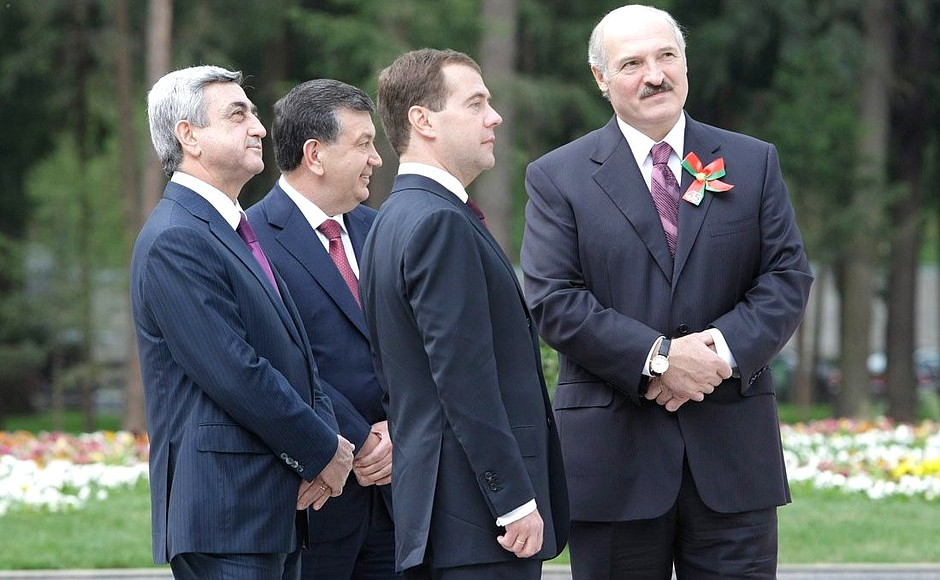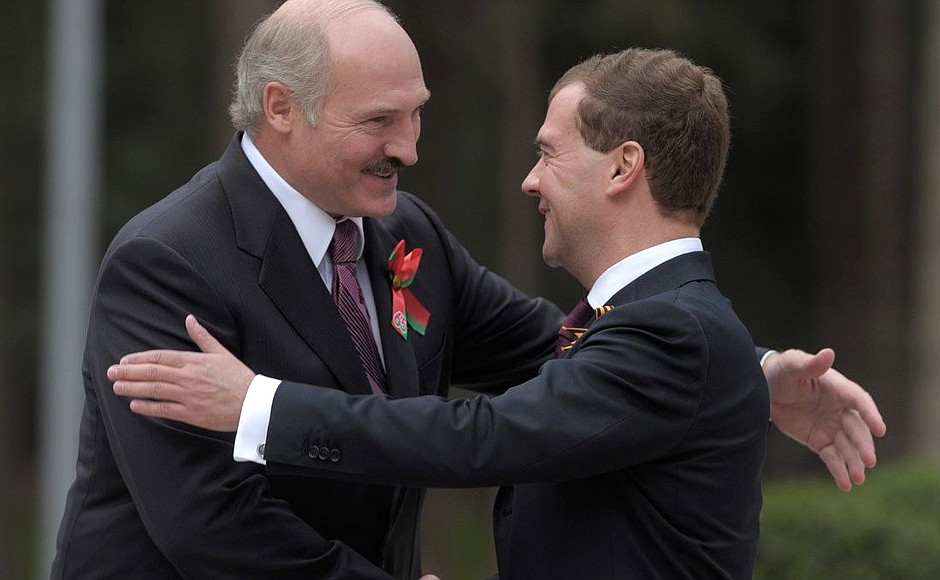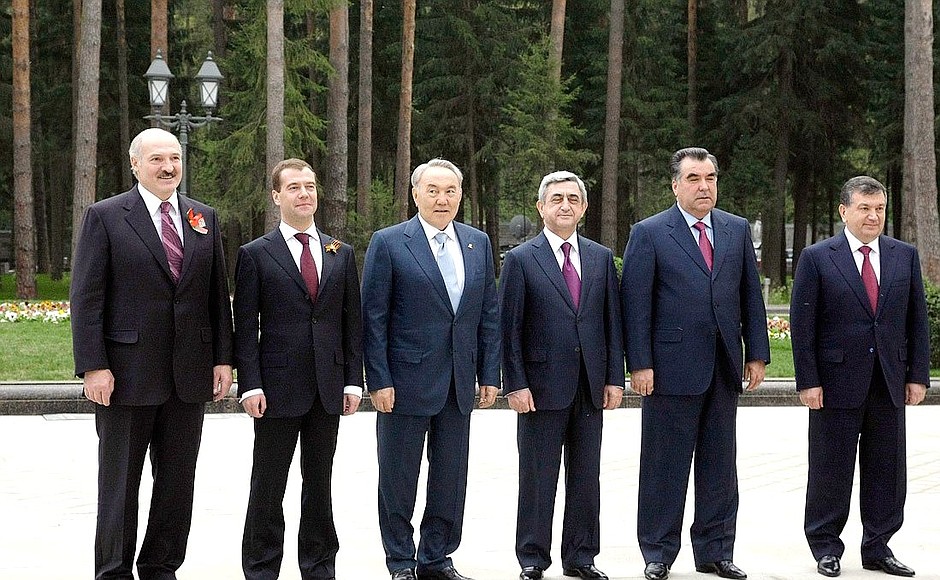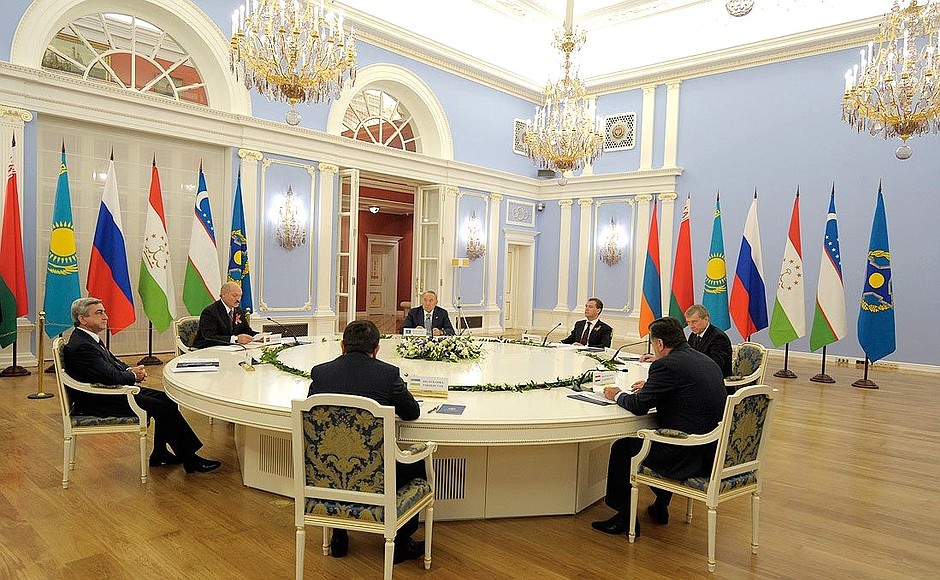The statement on the situation in Kyrgyzstan expresses profound condolences over the considerable loss of life and damage caused by the recent events in that country.
The CSTO member states stressed the need for a peaceful return to lawful social and political life in Kyrgyzstan as soon as possible, and called on the country’s authorities to restore law and order, guarantee human rights, and prevent violence.
The CSTO members also expressed their readiness to provide the people of Kyrgyzstan with humanitarian and other aid in the aim of stabilising the situation in the country as rapidly as possible.
The statement reiterated the strategic policy of developing cooperation in all fields within the CSTO with Kyrgyzstan’s active participation.
The second statement concerned the signing of the new Russian-US START Treaty. The CSTO member states welcome the signing of this agreement, seeing it as an important part of international security that reflects Russia’s and the USA’s major contribution to nuclear disarmament and non-proliferation.
In their statement, the CSTO heads of state note the historic role played by the START-1 Treaty of July 31, 1991, parties to which were also Belarus, Kazakhstan and Ukraine. The statement notes, in particular, that these three countries’ voluntary decision to give up the nuclear weapons they possessed and join the Nuclear Non-Proliferation Treaty as non-nuclear states had a beneficial impact on strategic stability in general.
The CSTO countries highlighted the importance of the fact that the Joint Declaration by the Russian Federation and the United States of America of December 4, 2009, confirms the security guarantees for Belarus, Kazakhstan and Ukraine that were set out in the Budapest Memorandums of December 5, 1994.
The statement also notes that, following the cessation of the 1972 ABM Treaty, it is particularly important that the new START Treaty makes the direct link between strategic offensive and strategic defensive weapons.
Taking part in the summit were President of Russia Dmitry Medvedev, President of Armenia Serzh Sargsyan, President of Belarus Alexander Lukashenko, President of Kazakhstan Nursultan Nazarbayev, President of Tajikistan Emomali Rahmon, Prime Minister of Uzbekistan Shavkat Mirziyoyev, and Secretary General of the CSTO Nikolai Bordyuzha.
* * *
Speech at Informal Collective Security Treaty Organisation Summit
Presideent of Russia Dmitry Medvedev: Dear colleagues, dear friends, let me say a few words at the beginning of our meeting. First of all, I sincerely welcome you to Moscow, to the informal summit of the Collective Security Treaty Organisation.
It is no accident that our meeting is taking place now. It is, of course, linked with the great anniversary that is being celebrated in all our countries, the 65th anniversary of Victory in the Great Patriotic War. It was the hardest, most ferocious war, but most importantly our peoples were united at that time and were able to defend their freedom and prevent a global catastrophe, a catastrophe on a global scale.
Now we are all working to ensure peace, stability and security in our respective countries. And it is our organisation that is called on to play a key, stabilising role in this regard, within its field of competences.
We had originally planned to have our meeting on a different date, but in light of certain requests by my colleagues, as well as a number of major events — I mean the events in Kyrgyzstan — we changed the schedule, the agenda, and naturally we will discuss this question too. The topic of Kyrgyzstan has also been discussed at the bilateral level. Today we have the opportunity to discuss it at the presidential level and for the Organisation to make a consolidated statement which outlines possible cooperation prospects in light of what is happening in Kyrgyzstan.
For all these reasons, an informal summit is the best option. We already have a good experience with this: we had a similar event in Borovoye, Kazakhstan, at the initiative of President Nursultan Nazarbayev. It was a good event and interesting decisions were made at that time.
Last year such a summit was held in Kyrgyzstan. Informal summits offer an opportunity to exchange impressions and ideas about the most pressing issues on the agenda.
I would also like to tell you about the current status of affairs regarding strategic stability and signing a treaty with the Americans on the limitation of strategic offensive arms. This is obviously important for all of us and directly affects our safety and security. Of course, we will also talk about what steps we must take in the near future.



